Post
A catch
Save a catch to start your fishing logbook. You will be able to to share it with the community if yo want!
A fishing trip
Post an ad to go fishing with other fishermen
Save a catch to start your fishing logbook. You will be able to to share it with the community if yo want!
Post an ad to go fishing with other fishermen
Share a thought, a question with the community
My favorite cities
×Join our 502 fishermen in Betws-yn-Rhos in Conwy. The fishing forecast is currently 3.3. The most caught fishes here are the wrasse fish , the flounder fish, the smoothhound fish and seabass. Come try the most famous fishing techniques like the jig fishing or cast fishing for mackerel, trap fishing for lobster, barracuda trolling or lead techniques for soft lures to fish bass.
Our fishing forecast of Betws-yn-Rhos indicates the best time to go fishing in this city.
The Wrasse fish
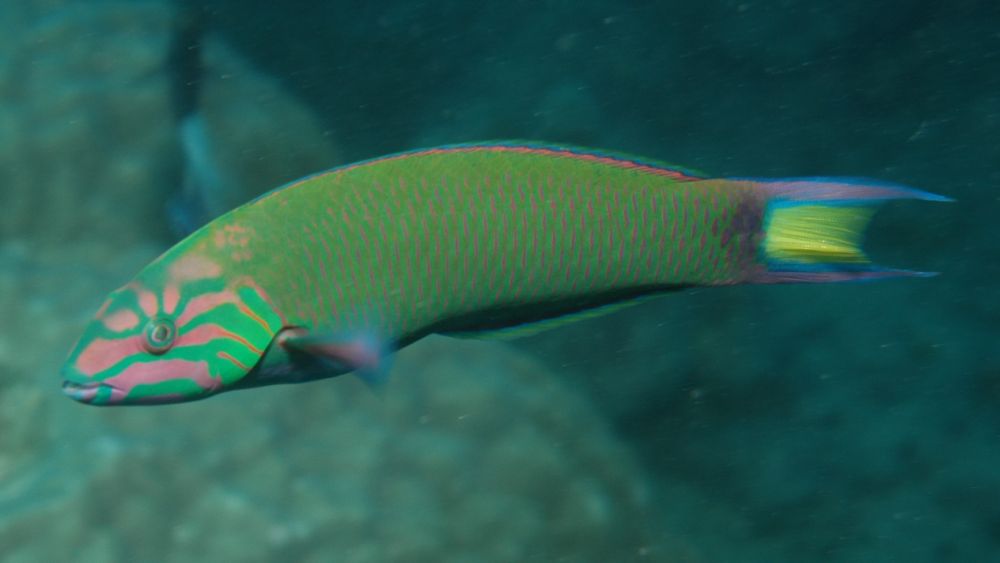
The Wrasse fish belongs to the Labridae family. Labridaes are marine fish, the Wrasse of the Labridae family, in the order of Perciformes. The family is large and diverse, with about 500 species of fish generally very colourful, grouped into 60 genera. The large number of species of wrasse offers an incredible diversity of colors, shapes and sizes with possible geographical variations between some individuals of the same species. In addition, like parrot fish, many livers evolve over the course of their lives according to their maturity and their position within the group. These evolutions can be considered in different phases (juvenile, intermediate or initial and terminal) at each of them, morphological modifications (size, shape and color) take place. All these variations in livery during the existence of a wrasse make it particularly difficult to identify between species, the risk of confusion is great and this even for specialists. During the juvenile phase, the dominant colors can vary from bright yellow to orange, as well as dull colors such as grey and brown with camouflage patterns. In the intermediate or initial phase, the wrasse is both male and female, adult but subordinate to the dominant individuals and therefore smaller with dull colors and cryptic patterns. However, in the terminal phase, depending on the species, fish can change sex, size and livery. The latter becomes a distinctive visual element within the group and is very colorful with red, yellow, gree
The Wrasse fish is a famous fish you can catch in Betws-yn-Rhos.The Flounder Fish
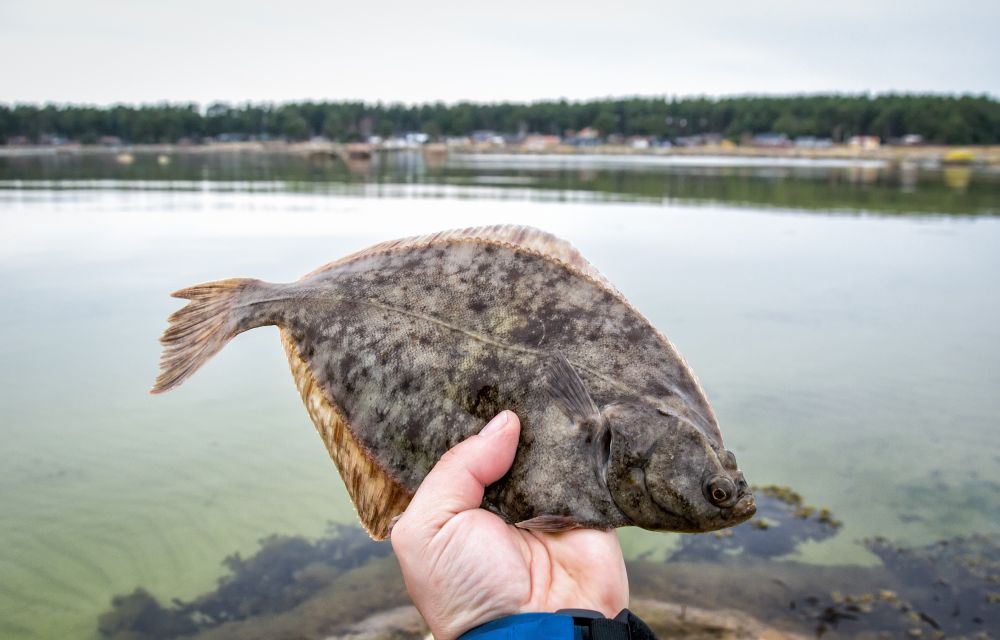
The Flounder Fish belongs to the Pleuronectidae family. It usually reaches a size of 50 cm; the maximum observed size is 60 cm for a weight of 1.5 kg. The maximum lifespan is estimated at 15 years. It reproduces in early spring. The female can lay up to 2 million eggs. The best time to fish it is in spring and autumn. The Flounder fish is a flatfish of general losanitary appearance, taking into account the triangular shape of the head and dorsal and anal fins. Both eyes are on the same side of the head, on the right side, for about 2/3 of the individuals. The mouth is small and terminal, with a slightly tapered snout. The oral commissure is located on the same line as the center of the eye. The lateral line barely curves towards the dorsal edge at the pectoral fins. It has a row of tubers in its front part. Similarly, the base of the dorsal and anal fins is highlighted by a line of tubers, which are clearly palpable. The anal fin has 35 to 46 soft rays. The oculate side has a variable coloring, from olive green to reddish brown, or grey, enhanced by dark green mottling, with small, dull and few orange spots. This helps to give it a "dirty" appearance. The blind side is white.
The Flounder Fish is a famous fish you can catch in Betws-yn-Rhos.The Smoothhound fish
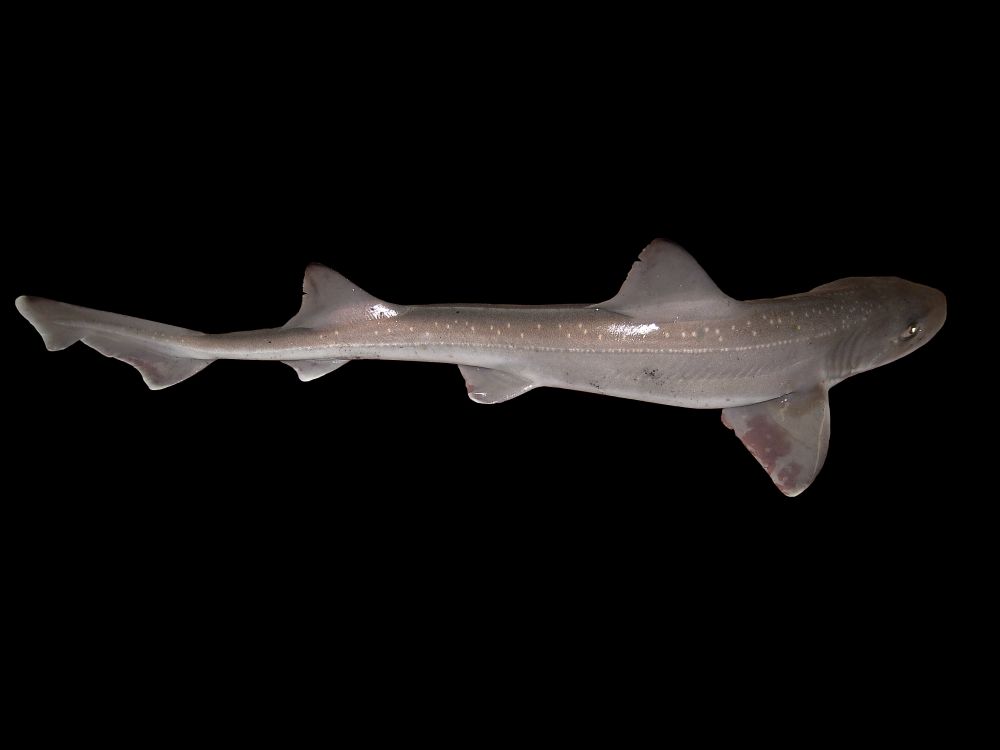
The Smoothhound fish belongs to the Triakidae family. In exceptional cases, the emissole can reach a length of 160 cm, but it is common between 60 and 120 cm. He can live for about twenty years. Breeding takes place between June and March. The female can give birth to 10 or 20 young. It is mainly fished in the summer. The Smoothhound fish is a cartilaginous fish (the skeleton is composed of cartilage elements) of medium size. The body is elongated and tapered. The head is compressed in the upper part and the muzzle is long and rounded. The mouth, located at the bottom, is oblique and equipped with a series of small and low teeth, which may be less rounded in young people. The nostrils, in a ventral position, have a large opening, and are closer to the mouth than to the top of the muzzle. The eyes are small, round in young subjects, and horizontal oblong pupil (typical of deep-sea species) in adults. On the muzzle, there are sensory organs for depth detection (hydrostatic). Next to the terminal part of the head, there are five gill cracks. A subtle but distinct fold of the skin is found along the back, from the tail to the gill cracks. The skin (shagreen skin) is almost smooth. The dorsal fins are two, triangular in shape, the second is slightly smaller than the first. The pectoral muscles have a rounded and slightly concave inner top. The caudal fin has two non-symmetrical lobes (the upper part more developed). The anal fin is present. The colouring of the back and sides ar
The Smoothhound fish is a famous fish you can catch in Betws-yn-Rhos.Seabass
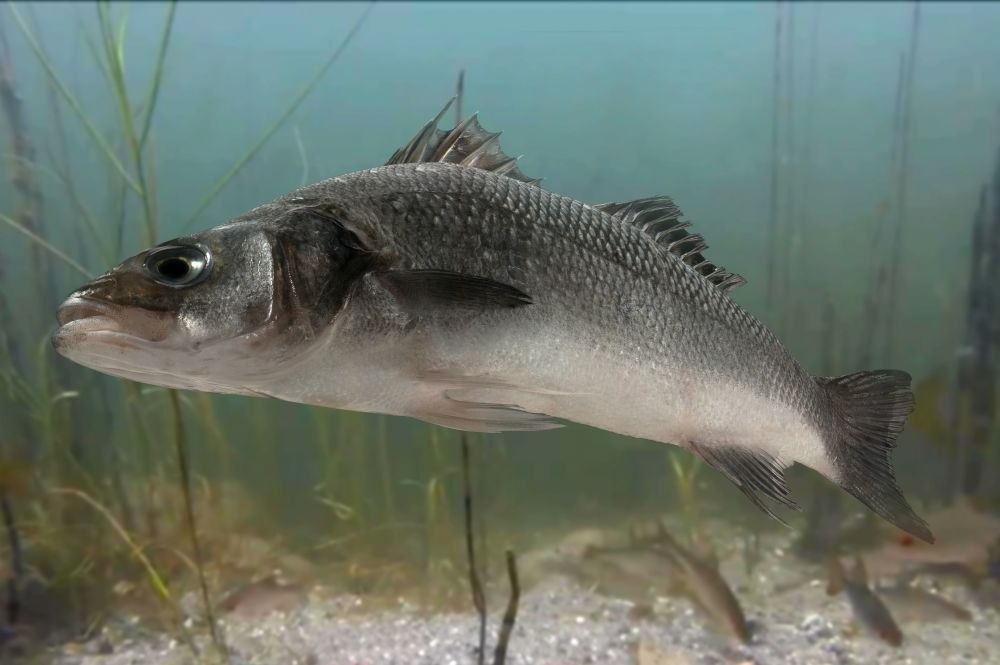
The Seabass belongs to the Moronidae family. Its size is usually between 70 and 80 cm (1.10 m maximum). The life expectancy of the seabass is variable: about thirty years in an aquarium, 24 years in Ireland, 6 years maximum most often in the Mediterranean. Breeding takes place between December and March or January to May depending on the location. The female lays 200,000 eggs at once. The body of this fish is elongated and slightly compressed. The two dorsal fins (the first thorny and the second soft) are well separated and have almost the same length and height. The anal fin is composed of 10 soft rays preceded by 3 thorny rays. The caudal peduncle is quite elongated and the caudal fin is indented, with an upper lobe often slightly longer than the lower lobe. The pectoral fins are short. The upper part of the head is quite straight, the upper jaw is a little shorter than the lower jaw. The operculum may have a more or less visible black spot in its posterior upper part. The scales are small in size but clearly visible. The lateral line is slightly arched in the front part of the body. The back is grey in color, the sides are lighter, with yellowish or silvery reflections. The pectoral and ventral fins are yellowish white; the others are darker. Mostly in young individuals, black spots may be present in the dorso-ventral region.
Seabass is a famous fish you can catch in Betws-yn-Rhos.Black Bream Fish
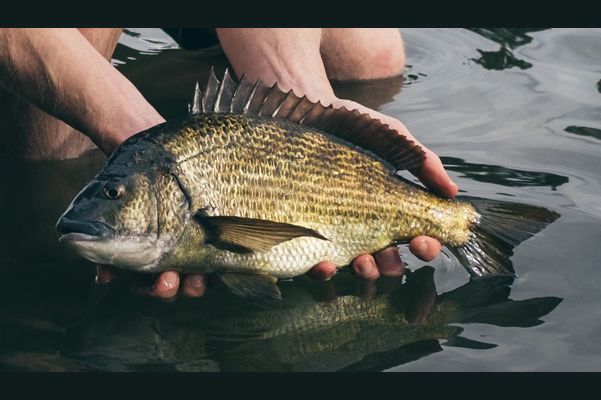
The Black breamfish, also known as Acanthopagrus butcheri, is a Sparidae. In general, its average size is 15 to 35 cm and its weight is 500 g to 2.5 kg. However, some individuals can reach up to 60 cm and 4 kg. The black bream has a lifespan of 27 years. Its spawning period is between August and January. It can have up to 300,000 spawn each season. It is not hard to catch and offer a little resistance. The Black bream has a high body and relatively compressed laterally, with symmetrically curved dorsal and ventral fins. The mouth is of moderate size compared to the body and has six incisors in the front of the lower and upper jaws. The body is covered with large scales that can be cycloid or slightly ctenoid. The head is essentially flake-free, except for the lids. A flake sheath covers the soft ray bases of the dorsal, anal and caudal fins. The Black Bream is silvery, from golden brown or bronze to grey-green on the back as well as on the sides with sometimes greenish reflections, depending on its habitat. The belly is white. The fins are all dark, with black borders. The caudal fin is often dark olive-brown.
Black Bream Fish is a famous fish you can catch in Betws-yn-Rhos.Our fishing forecast of Betws-yn-Rhos indicates the best time to go fishing in this city.
Our fishing forecast of Betws-yn-Rhos indicates the best time to go fishing in this city.
Our fishing forecast of Betws-yn-Rhos indicates the best time to go fishing in this city.
